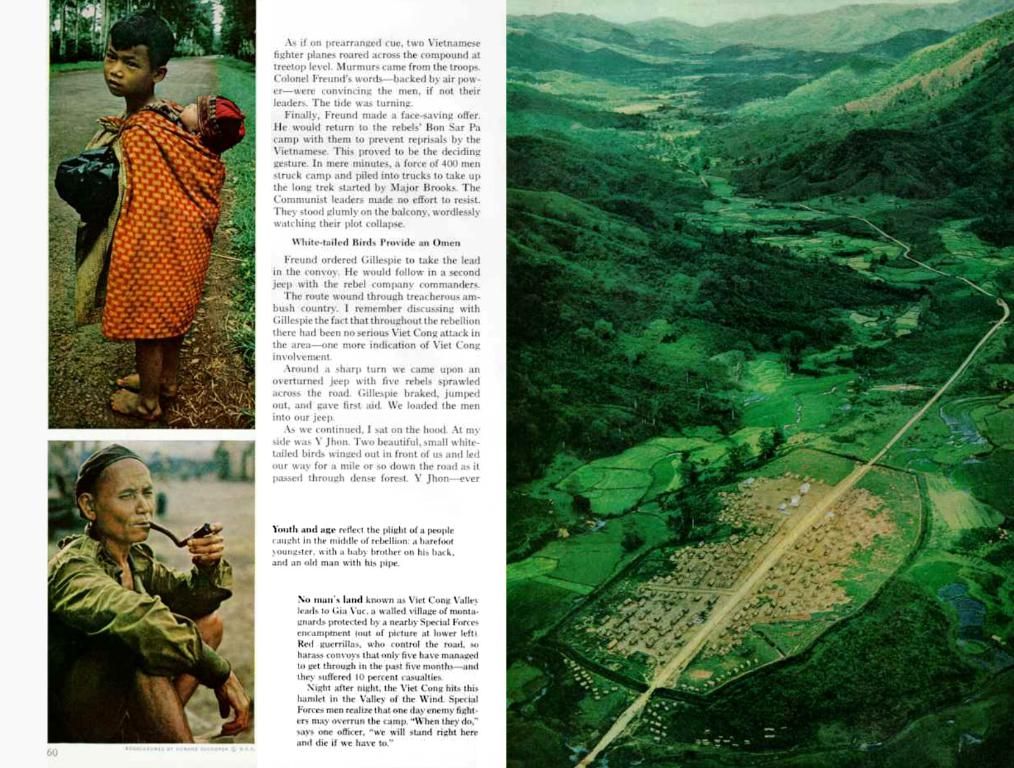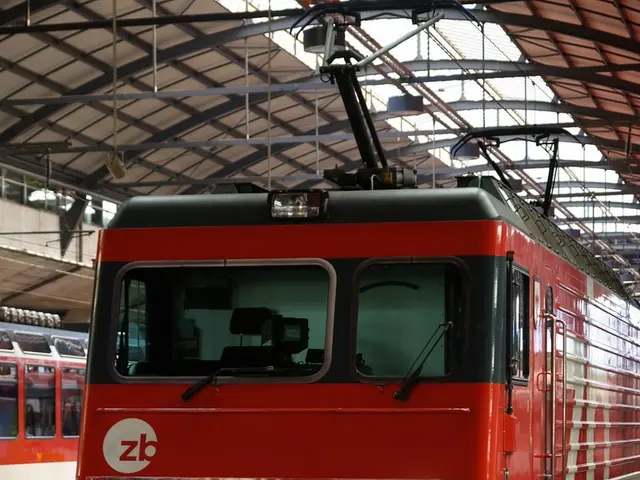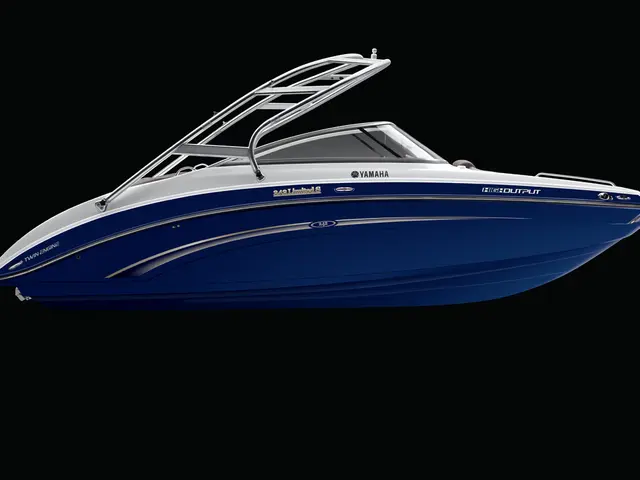Removing roadside parking persists in NRW: Uncovering the reasons behind this practice
Revamped Cityscapes: Bike Lanes and Vanishing Parking Spots
The evolution of city life in North Rhine-Westphalia is marked by the appearance of bike lanes and the disappearance of parking spaces. This transition has far-reaching consequences for transportation, safety, and public opinion, as towns and cities in the region branch out from car-dominated landscapes to more environmentally friendly alternatives.
Repercussions for Road Safety
- Safer Cycling: Expanding bike lanes means less danger for cyclists sharing the road with vehicles. Dedicated bike lanes separate cyclists from traffic, minimizing accidents and injuries.
- Reduced Vehicle Speeds: Trimming parking spaces leads to smaller roads that often slow down vehicles, thereby enhancing overall safety by providing drivers with more time to react to unexpected situations.
Impact on Transportation Options
- Active Travel Boost: Extending bike lanes encourages a greater use of bicycles, fostering healthier lifestyles and decreasing reliance on cars. This shift can ease gridlock, making cities less crowded.
- Public Transportation Ascend: The reduction of parking spaces can stimulate the utilization of public transportation, walking, or cycling. Such shifts in transportation choices can improve air quality and combat urban congestion, result in more habitable cityscapes.
Public Sentiment
- Support for Green Initiatives: The citizenry often welcomes efforts geared towards sustainability and reduced congestion. In North Rhine-Westphalia, projects like the EUREF-Campus in Düsseldorf showcase the region's dedication to environmental protection and innovation, securing public backing for transportation reforms.
- Resistance to Change: Some residents might balk at alterations to parking spots and traffic flow, particularly if these alterations are seen as bothersome or restrictive. Persuasive dialogue and active community involvement are vital in easing these concerns and rallying support for urban planning changes.
Key Projects in North Rhine-Westphalia
- EUREF-Campus Düsseldorf: This project embodies innovation and sustainability in North Rhine-Westphalia, concentrating on eco-friendly projects and novel mobility solutions.
- Impulse Festival: Events such as the Impulse Festival bike tour along the Via Regia highlight the area's cultural and environmental initiatives, which can sway public sentiment about cycling infrastructure.
In summary, the emergence of bike lanes and disappearance of parking spaces in North Rhine-Westphalia can lead to a safer and more environmentally friendly urban environment, offering improved transportation options for its citizens. However, the public's backing for these changes hinges on effective dialogue and community involvement, ensuring their approval for urban planning innovations.
- Financial Investment in Environmental Science: Climate-change concerns drive cities in North Rhine-Westphalia to invest in cutting-edge environmental science, using the increased revenue generated from the reduction of parking spaces to develop pioneering transportation alternatives.
- Sustainable Science in Industry: Science-driven industries can leverage the region's bike-friendly infrastructure to improve employee health and boost productivity, allowing for more efficient manufacturing processes that minimize environmental impact.
- Green Finance Opportunities: The transition towards greener transportation corridors will generate demand for finance solutions dedicated to environmental projects, creating a new market in North Rhine-Westphalia for organizations specializing in green infrastructure development.








